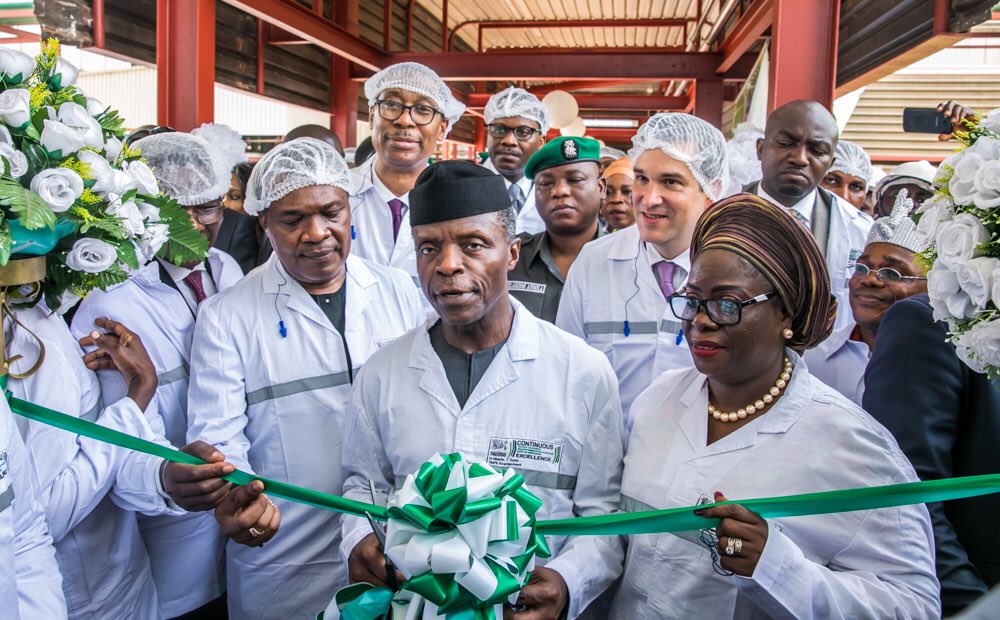There are no products in your shopping cart.
| 0 Items | £0.00 |

 By Ayo Akinfe
By Ayo Akinfe
With the declaration of the Adamawa result, we now know who all our governors are. All that remains is for the formality of Nyesom Wike to be declared the winner in Rivers State and the election matter is resolved. With this out of the way, the serious business of pursuing economic growth needs to start in earnest.
If President Muhammadu Buhari really wants to etch his name in gold, he needs to hand over the task of diversifying and expanding our economy to the National Economic Committee chaired by the vice president Professor Yemi Osinbajo. Their first act after the May 29 swearing-in must be to forward a National Economic Equilibrium Bill to the National Assembly.
Nigerian Economic Equilibrium Bill 2019
[1] Given that Nigeria's average revenue from crude oil exports totals about $50bn a year, four other sectors of the economy must each match this figure by the year 2025. They agriculture, manufacturing, tourism and solid mineral extraction. Our aim should be to generate at least $300bn in export earnings a year.
[2] By 2029, all state governments should generate internally the amounts needed to run their domains. Failure to be able to do this over three successive months will result in a state of emergency declared with the president dissolving the state executive council and state house of assembly and putting a sole administrator in charge
[3] Every state must spend 15% of its annual budget on education to bridge the skills shortage gap required to bring about this much-needed industrialisation. Failure to do this will result in the finance minister withholding federal funding from such states
[4] As from 2029, all federal grants shall solely be used for capital projects. Using such funds for government running costs will be regarded as statutory corruption and will attract immediate prosecution
[5] By 2030, Nigeria's finance minister and all the state commissioners of finance are mandated to achieve the budgetary ratio of $1bn to every one million citizens. This means that for instance, a state with 6m must have an annual budget of $6bn and one with 180m people must have a budget of $180bn
[6] By 2025, Nigeria must end the export of all primary products. It will become illegal for any product to be exported unless some value is added to it
[7] All commercial banks are instructed to open industrial development subsidiaries by 2023. These industrial development banks cannot charge interest rates above 9% for any loans they render to businesses, farmers, trading houses, merchants or manufacturers
[8] As from 2023, every state government is compelled by law to generate, distribute and transmit the power used within its domain. For this purpose, they will all seek to build mini grids, while local government areas will be allowed to construct micro grids with no limits to the amount of power they are allowed to distribute and transmit
[9] Every state capital in Nigeria will be linked to a national railway network. This policy will seek to peg the number of cars on Nigeria's road at the current 12m with the aim of moving passengers from road to rail. Rail will also become the main conduit for transporting agricultural produce, solid minerals, machinery, finished goods and industrial raw materials. The transport minister will monitor this to ensure that the rail to road ratio never falls below 50%, so that half of all rail journeys in Nigeria are made by train
[10] Punitive taxes of 500% will also be placed on items like generators, solar panels, automobiles, as well as certain locally-produced food items like tomato paste, rice, sugar, etc, with a view to boosting domestic production. Once a year, the National Economic Council will review this list and add products to it as its deems fit